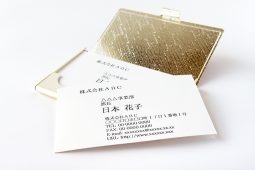WORK
The way of dealing with people in business situations is not just different in Japan, it is diametrically opposite to what you would expect abroad.
Foreign employees and managers newly transferred to a Japanese branch are too often taken aback by the way Japanese workers might act and react in a work environment.
In the West, bonding with coworkers usually happens over lunch or by the coffee machine while taking a well-deserved break. In Japan, spending time with your coworkers outside working hours on a regular basis is usually expected, more particularly when working with older generations.
This series introduces IT engineers from abroad who are working in Japan. In this installment, we introduce Aung, an IT engineer from Myanmar.
Myanmar is experiencing frenzied development. IT is also advancing at a rapid pace, with Myanmar becoming a popular offshore location.
Today we introduce Nivi, an IT engineer from India. Interested in Japanese TV dramas and culture, it was Nivi’s dream to work in Japan. After lots of hard work and challenges, she realized her dream of working as an IT engineer in Japan, the country she so admired. Now, after having fulfilled this dream, Nivi continues to strive toward her goals each day!
Culture is a mysterious thing. It can dictate the food you eat, the games you play, even the colors you see. But for many people moving abroad to work, it can be even more confounding for not only is culture at large different, but the specifics of business and work add another layer of complexity.
Business cards, or 名刺 meishi in Japanese, are everywhere in Japan. Kids practice making them in school, people who don’t have jobs make cards to hand out their contact details to new acquaintances, and they mark an essential part of every business encounter. You will have business cards in Japan, whether supplied by your employer or you design your own. It’s inevitable.
This article introduces Ice, an IT engineer from Thailand. In recent years, Thailand’s IT development has progressed rapidly, and it’s seen as the leading nation in Wi-Fi usage in Southeast Asia. There are unlimited 4G SIMs available for 500 baht (about 1,800 Japanese yen) per month, making for an environment in which it’s easy to connect to the Internet.










